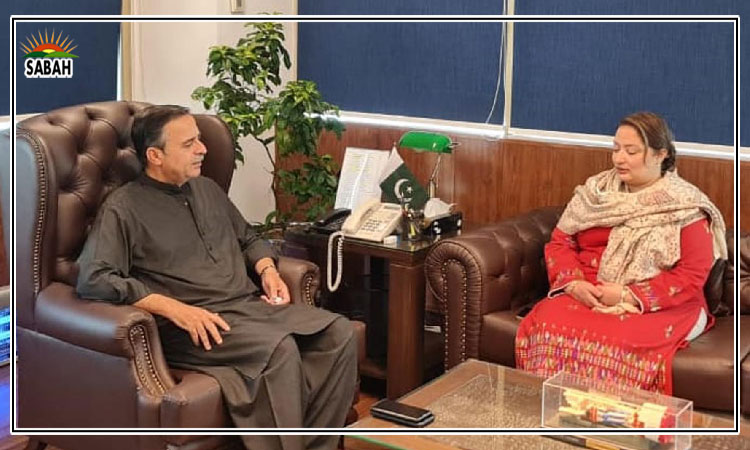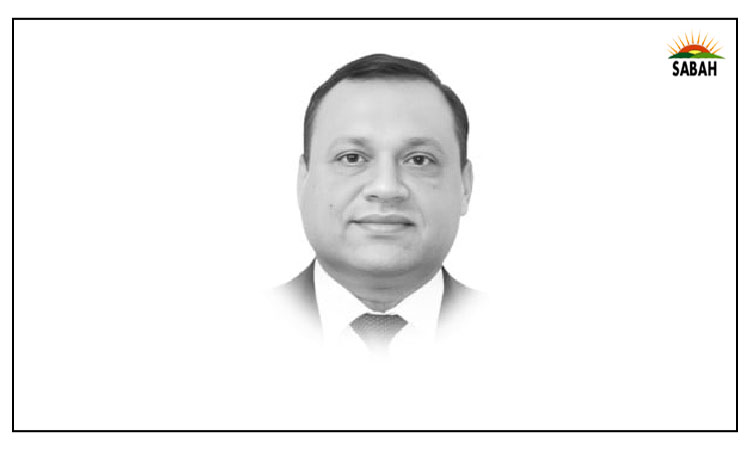Geopolitical uncertainties and the rising global South ۔۔۔۔Dr Muhammad Ali Ehsan
Pakistan is eternally marred in the complexities and controversies of its domestic politics and there seems to be no end to the great desire of our policymakers of harming our own cause and shooting ourselves in the foot. People hate hypocrisy and double standards and unfortunately both of them are aplenty in the dirty politics of Pakistan. The consequences of this poor domestic politics are many but a recent one is that Pakistan has been downgraded by EIU to ‘authoritarian regime’ and has declined 11 places in global ‘Democracy Index’. When Pakistan will be free from looking down upon its feet and raise its head to look around it will find how much time and good sense it lost to be part of the regional and international world. What I write today is about that world.
Pursing their national interests many countries of the global south altered their national policies to fit in a new world of trending geopolitical realities of postcolonial realism and anticolonial solidarity. This is the big bloc of a new emerging world of global south the hegemony of which is under contest and being claimed by both China and India. Clearly, on its own India doesn’t have the resources to match China’s political, economic and security approach towards global south. India, relying on the influence of US and its allies thus India, challenges Chinese ambitions as part of the Indo-Pacific strategy of the US in which the UK, Japan and Australia also participate through AUKUS and QUAD. India’s interest in leading the global south was demonstrated when it organised a virtual summit of global south countries in Nov 2023 in which 125 countries participated and China was not invited.
There is no doubt that we are living in dangerous times and the world is trending in a dangerous direction. The countries of the global south are frustrated and uncertain about their political and economic securities given the double standards in Israel’s war in Gaza and west’s support to the Ukraine war. Sixty-four countries are conducting elections in 2024 and what we have so far observed in what has happened in elections in Bangladesh and Pakistan it seems that democratisation as a process is stalling and failing. Further elections in countries like the US, India, Iran, Taiwan, Ukraine, Georgia and Sri Lanka would hold greater geopolitical implications for certain geographic regions and possibly for the entire world. The US and also the rising and the resurgent powers of the world such as China and Russia would go to any extent to refashion the geopolitics in their favour and to lead global south and stake claims on becoming the hegemon of the global south — a position for which the great powers will indulge in an unending geopolitical contest. This will only create further polarisation and under such conditions there will be limited options for the countries of global south to achieve modernisation under the global circumstances of shared prosperity.
China does not share with the countries of global south their colonial experience as China was never colonised. Part of it was occupied by Japan in the 20th Century and it also made concessions to many western powers in the 19th Century but China was never conquered. Since China never had to suffer the humiliation of being colonised, its people as well as the Chinese civilisation have remained pure and not subjected to the master-slave relationship or even be part of a western dictated world and liberalise and democratise. China rejects the US hegemony and the international order of liberal internationalism led by it, and wants to move along the countries of global south to challenge this US global hegemony. The US in turn is pushing India to challenge China in the alternative order that it wants to create. What is that alternative order?
China is promoting forums that are under serious discussion and deliberation for acceptance, if not already accepted in the countries of global south. It is not just the Belt and Road Forum but the Global Development Initiative, the Global Security Initiative and the Global Civilizational Initiative. The difference in the US-led world and the world that China is promising to lead is simple. American foreign policy for the large part of the last decade of 20th century and the first decade of 21st century was dictated by the work of the likes of SP Huntington and Francis Fukuyama. Their thesis on The Clash of Civilizations and End of History and the Last Man Standing defined much of the American foreign policy decisions and American statecraft. The unnecessary wars that America fought during its unipolar moment can all be credited to a foreign policy that was influenced by the work of these scholars. On the other hand, President Xi Jinping of China doesn’t believe in the clash of civilisations but in the benefit that the diversity of civilisations bring. President Xi believes in the universal values of humanity and basing on that the increased people to people contact and exchanges. Not a divided world on the basis of authoritarianism and democratisation but a united world under the banner of the concept of a community of shared future of mankind. The American scholars dictated that conflict between different cultural groups is inevitable and the American practitioners proved that by clashing with Islamic fundamentalism and the Islamic civilisation around the world, but the Chinese don’t see it that way and that is the alternative world order that they project. An order built on cultural exchanges and dialogue, where China is ready to share its destiny with all other nations and build an order based on a global development community that represents justice, fairness and peace and stability.
What China wants the countries of global south to understand is that unlike the western world the Chinese modernisation plans don’t take the route of colonial plunder nor are they fashioned to create like the US a global hegemon. The American and Chinese visions of the future world are different in many ways and it is up to the countries of global south to determine which vision is best suited for a stable and peaceful future world. The Chinese plan is to turn the global south against the US-led order. The reaction of global south to the wars in Ukraine and in Gaza, their helplessness in their growing debt servicing on IMF loans, the waning American liberal international order — all suggests that global south may make choices that would render them closer to China and its alternative order rather than to the US whose geopolitical plate is already full of failures.
Time for countries like Pakistan to wake up, time for their elite to stop polluting their domestic politics for personal benefits and time for them to lift their heads to see what is going around in the region and the world and what are the right choices they must make.
Courtesy The Express Tribune, February 18th, 2024.












